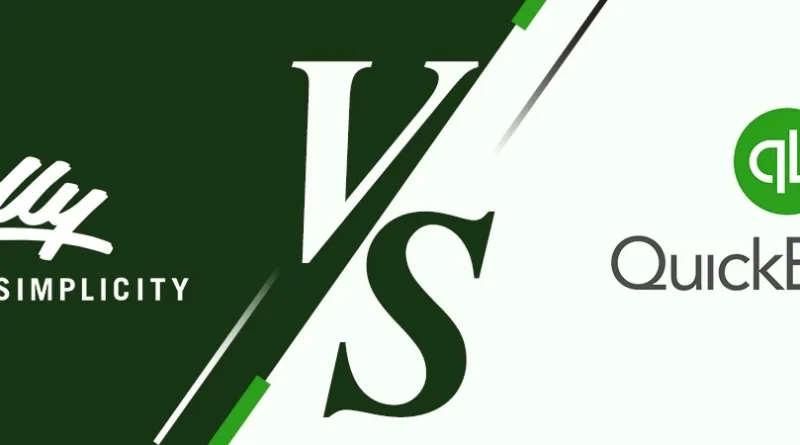Tally vs QuickBooks
Tally vs QuickBooks for Project Management: What’s Best for Your Business?
Introduction
Choosing the right accounting software can significantly impact project success. For businesses managing projects, tools like Tally and QuickBooks offer unique solutions. This article explores the key features of Tally vs QuickBooks, examining their project management capabilities. With these insights, you can determine which software best suits your business needs.
Why Project Management Needs Reliable Accounting Software
Effective project management goes beyond tracking tasks; it involves managing budgets, expenses, and profitability. A reliable accounting tool can streamline these financial aspects, enhancing project efficiency. Tally and QuickBooks, known for their accounting strengths, also bring project-focused features. Let’s compare how each software supports project management to help you choose wisely.
Key Features of Tally for Project Management
Tally is primarily known for its robust accounting capabilities. However, it also offers features beneficial for project management.
1. Budgeting and Cost Control
Tally allows you to set budgets for specific projects, keeping expenses under control. This helps businesses avoid overspending while achieving project goals.
2. Tracking Income and Expenses
Tally’s project tracking feature lets users categorize income and expenses. This ensures clear financial visibility for each project phase.
3. Customizable Reports
With Tally, users can create customized reports for project tracking. Reports can detail expenses, progress, and profitability, aiding in data-driven decision-making.
4. Multiple Project Management
Tally supports the management of multiple projects simultaneously. This feature is ideal for businesses handling several projects, enabling centralized financial tracking.
Key Features of QuickBooks for Project Management
QuickBooks is designed for businesses needing both accounting and project management features. It’s well-suited for small to medium-sized businesses.
1. Project Profitability Tracking
QuickBooks lets users track project profitability, offering insights into revenue and costs. It’s a critical feature for businesses aiming to optimize profits on each project.
2. Expense Tracking and Billing
QuickBooks enables precise tracking of project-related expenses. With its invoicing tools, users can also bill clients directly, reducing administrative tasks.
3. Time Tracking for Accurate Billing
One standout feature of QuickBooks is its built-in time-tracking capability. By monitoring employee hours, businesses can bill accurately and maintain transparent project costs.
4. Collaboration and Accessibility
QuickBooks is cloud-based, making it accessible from anywhere. Teams can collaborate easily, which is beneficial for remote or distributed project teams.
Comparing Usability: Tally vs QuickBooks
Usability is a key factor in choosing accounting software, especially for project managers who may not be accounting experts.
Tally’s Learning Curve
Tally is more traditional and may have a steeper learning curve. However, once users are familiar with it, Tally’s interface is straightforward for project financial tracking.
QuickBooks’ User-Friendly Interface
QuickBooks is known for its intuitive, user-friendly interface. It’s designed with non-accountants in mind, making it ideal for managers without formal accounting training.
Reporting Capabilities in Tally vs QuickBooks
Effective project management relies on data insights. Let’s see how Tally and QuickBooks compare in their reporting capabilities.
Tally’s Reporting Flexibility
Tally offers customizable reporting options, allowing users to tailor reports according to project needs. These reports can provide an in-depth view of financial status, budgets, and project profitability.
QuickBooks’ Real-Time Insights
QuickBooks excels in real-time reporting. With cloud accessibility, users can generate reports on-demand, keeping project data up-to-date. This is advantageous for fast-paced environments requiring instant data.
Integration and Compatibility
Integrations help software work seamlessly within your existing business systems. Let’s look at how Tally and QuickBooks fare in terms of compatibility.
Tally’s Limited Integration Options
Tally is primarily an offline system and may have limited integration options with other tools. However, its comprehensive features compensate by covering most in-house accounting and project management needs.
QuickBooks’ Extensive Integration Capabilities
QuickBooks offers numerous integrations with third-party software. It connects well with project management tools, CRMs, and payroll systems, creating a smooth workflow across various platforms.
Pricing Comparison: Tally vs QuickBooks
Budget constraints are common in businesses, especially when handling multiple projects. Here’s how Tally and QuickBooks compare in terms of cost.
Tally’s Upfront Cost
Tally operates on a one-time licensing model. This can be cost-effective in the long run for businesses preferring a single payment instead of monthly fees.
QuickBooks’ Subscription-Based Model
QuickBooks follows a subscription model, with different plans for various business needs. Its flexible pricing structure allows businesses to pay as they grow, making it accessible for startups.
Security and Data Backup
Data security is essential in any business, especially when handling sensitive financial information. Here’s how Tally and QuickBooks approach data security.
Tally’s In-House Security Features
Tally is primarily an on-premise software, meaning data remains stored locally. This can be beneficial for businesses wanting complete control over data security.
QuickBooks’ Cloud Security
QuickBooks, as a cloud-based platform, ensures data protection with encryption and regular backups. This is ideal for businesses needing reliable, off-site data storage.
Choosing the Right Software for Your Project Management Needs
In the debate of Tally vs QuickBooks, the best choice depends on your specific project management requirements. Here are some factors to consider:
- Ease of Use: QuickBooks offers a simpler interface, beneficial for non-accountants.
- Project Tracking: Both software solutions offer income and expense tracking, but QuickBooks excels with its profitability and time-tracking features.
- Budget: Tally’s one-time cost may be more suitable for businesses avoiding recurring payments.
- Accessibility: QuickBooks’ cloud-based setup provides remote access, whereas Tally is more suited to in-office use.
Conclusion
The Tally vs QuickBooks comparison reveals unique benefits in each software for project management. QuickBooks is suitable for businesses needing comprehensive project tracking, cloud access, and ease of use. Tally, however, is ideal for companies preferring a traditional setup with robust accounting tools. By assessing your needs, budget, and team setup, you can choose the software that enhances your project management capabilities and business growth.

